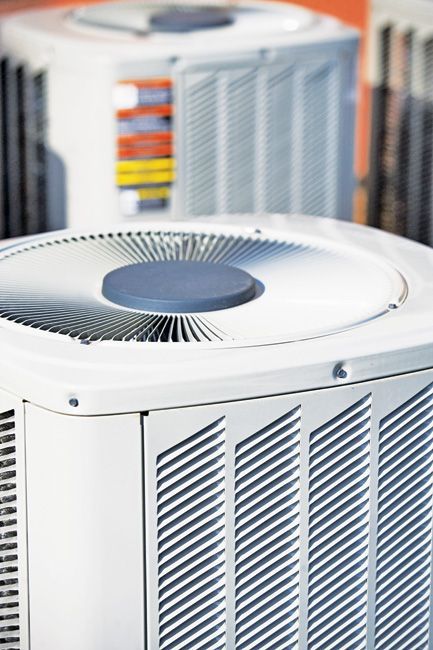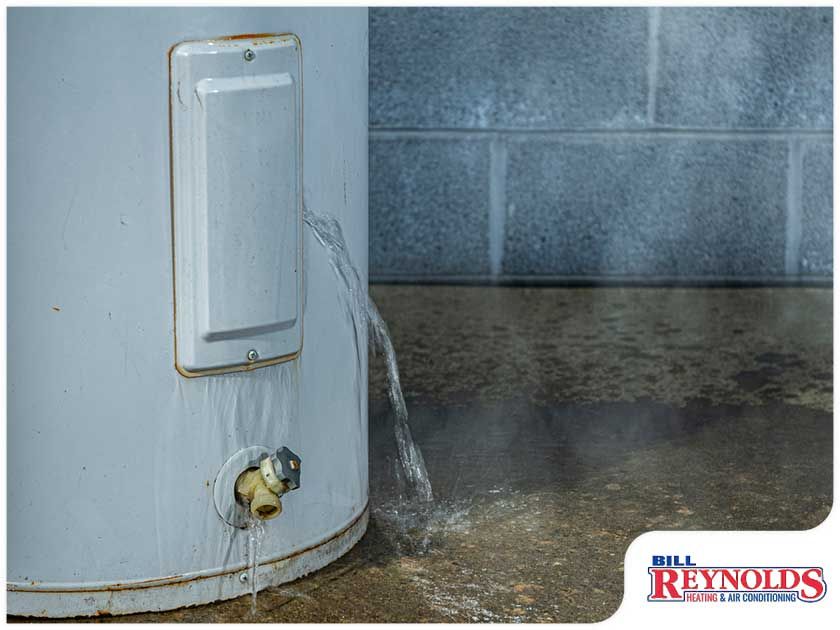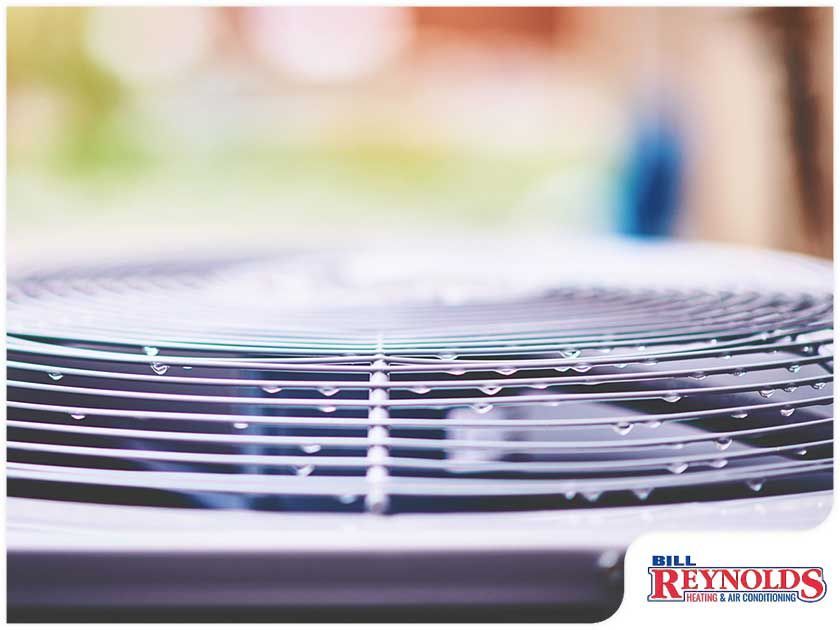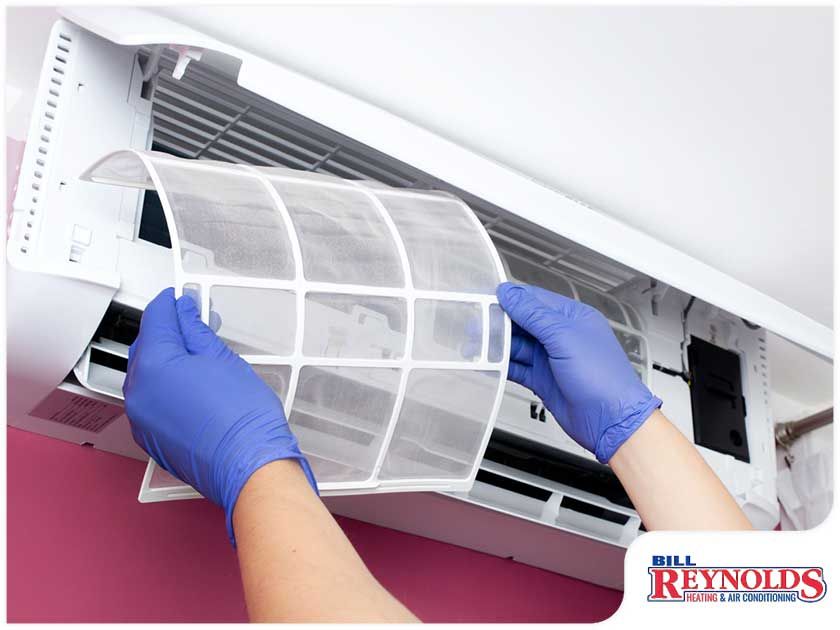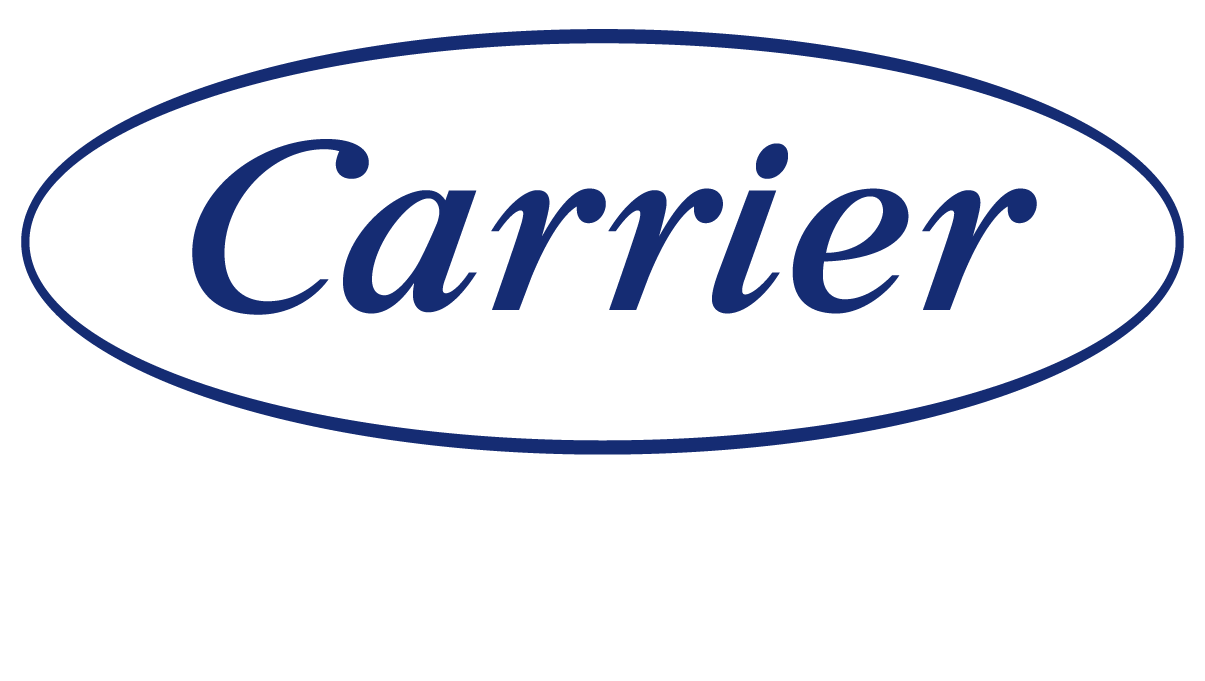Cooling a Finished Basement: Challenges & Solutions
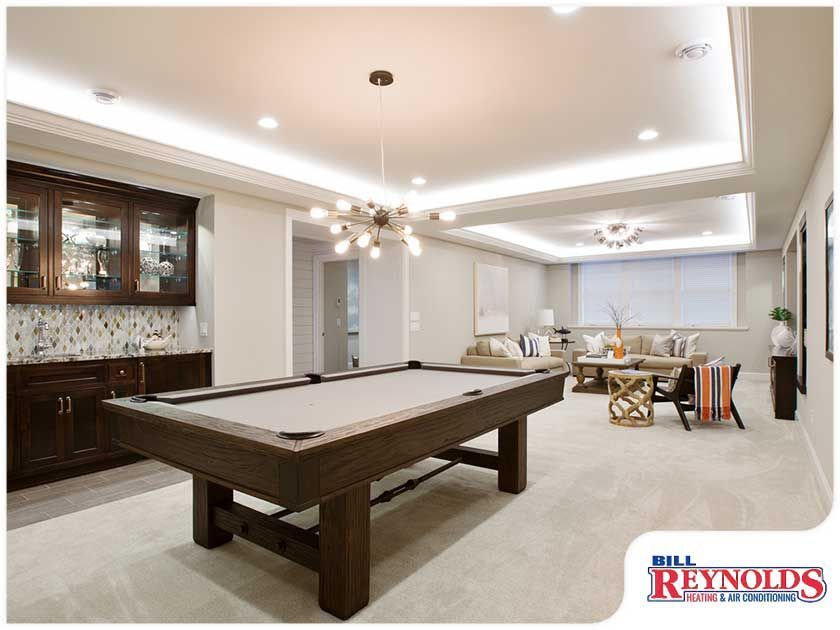
Common Challenges With Cooling Basements
Increased humidity. Areas prone to increased humidity require sufficient ventilation to prevent moisture-related issues like poor indoor air quality, corrosion, mold growth and rot. Excessive moisture can also cause bad odors and lingering smells.
Added square footage. A finished basement adds to the square footage that your HVAC system has to cool and heat. If your home’s square footage goes beyond the equipment’s capacity, it will need to work harder to keep you comfortable. As a result, your energy bills will increase, and your comfort will suffer. The added load can also strain several system components, leading to more frequent malfunctions. You can save on air conditioning repair costs by choosing a unit that’s correctly sized for your home.
Insufficient or no windows. Another common challenge in cooling finished basements is the number of windows. Some basements have small windows placed higher up in the room, while others don’t have any at all. A lack of windows can result in poor airflow, which can contribute to moisture-related problems.
What Can You Do About These Issues?
Use a dehumidifier. Increased humidity can warm up your basement, making it harder for your HVAC system to cool the space. Since this part of your home is usually more humid than other areas, you can keep heat and moisture levels down by running a dehumidifier. This equipment will eliminate excess humidity from your basement, helping cool your basement and making its environment more pleasant. Moisture from your basement will accumulate in the dehumidifier, which you’ll need to drain from time to time.
Encourage good airflow. The U.S. Environmental Protection Agency says that there are usually two to five times the amount of air pollutants indoors than outdoors. Sometimes, these levels can even be up to 100 times higher, meaning the air you breathe indoors may not be as clean as you believe. When the air can’t circulate properly in your basement, these pollutants will remain and collect in the air.
What you can do is have a cooling and heating service provider place HVAC equipment in your basement if it doesn’t have any. Doing this will help keep the area comfortable like the rest of your house. However, if adding HVAC equipment isn’t an option, you can have fans installed instead. If your basement’s ceiling is too low to install ceiling fans, consider tabletop or floor fans to keep air circulating throughout the space.
Keep the sun at bay. Do you have windows in your basement? If so, try to limit the amount of sunlight that enters the room during the day. You can easily do this with blackout curtains, which you can purchase at most major retail stores. This window treatment will keep the sun from penetrating your space, helping it stay cool, especially during the warmer months.
Improve your indoor air quality. Regardless of what equipment you use to cool your basement, maintaining good indoor air quality is a must. Invest in a high-quality air purifier with a HEPA filter to minimize dirt, dust and other pollutants. Usually, air purifiers feature an activated carbon filter to catch smaller particles. Installing this equipment goes a long way in keeping the air you breathe indoors as clean as possible. As an experienced air conditioning repair and installation company, you can count on Bill Reynolds Heating & Air Conditioning to help you improve your indoor air quality.
What Are Your Options?
What if You Can’t Extend Your Current HVAC System?
The most common option for homeowners to finish their basement is extending their existing HVAC system. While this is the customary choice, it’s not necessarily the easiest one. You need to consider various factors before extending your current unit.
You’ll need to hire a cooling and heating service provider for an inspection. They can tell if your existing equipment can handle the added load from your basement. If your unit is old, there is a greater chance that it’s already met its full capacity and can’t take on the added square footage from the basement.
If your current HVAC unit isn’t capable of heating and cooling your basement, you can choose one of two routes: either upgrade your existing equipment or install another HVAC system meant only for cooling your basement.
What Happens if Your Current HVAC System Can Be Extended?
Once your technician determines that your existing HVAC system can cool your basement, all you need to do is have your ductwork extended. This is the easiest way to bring conditioned air to this part of your house. The best time to install additional ductwork is during the early stages of your basement finishing project. Your technician will attach extensions and registers to the main supply. They can hide the new ductwork between the joists of the unfinished ceiling or within future built-in closets.
Consider the Needs of Your Basement and Household
Consider the needs of your basement before installing new HVAC equipment. What is the function of this space, and how frequently are you going to use it? Does it have a bedroom, bathroom, entertainment area or home gym? How many family members do you have, and do you live with aging loved ones? Do you have pets at home? Once you have a clear idea of what your space and family need, you’ll find it easier to determine which cooling options are ideal for you.
